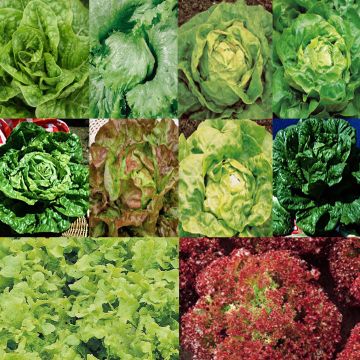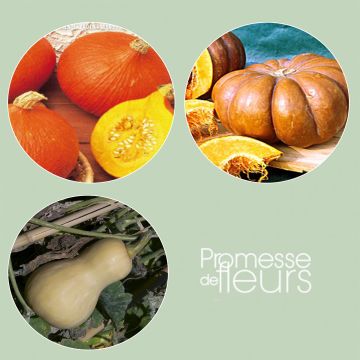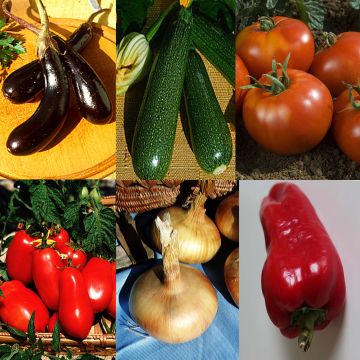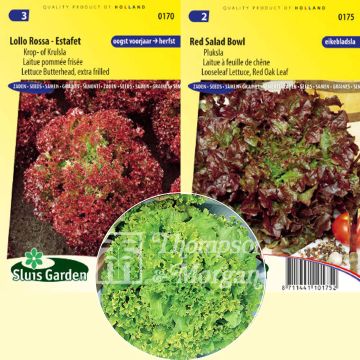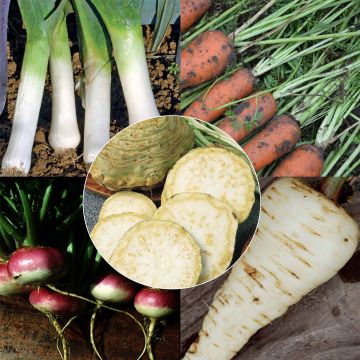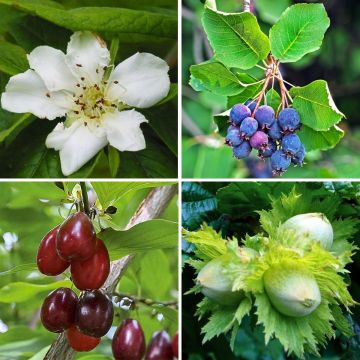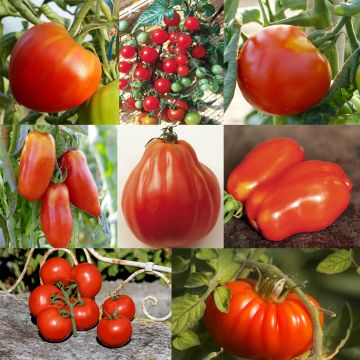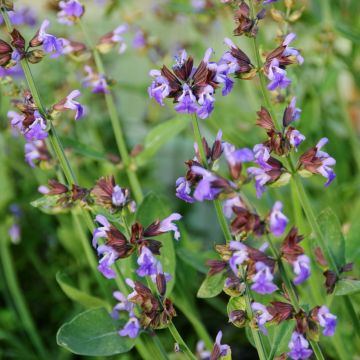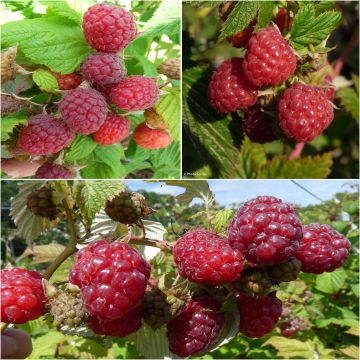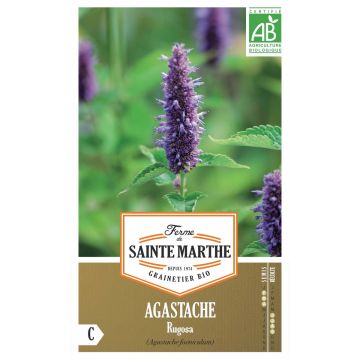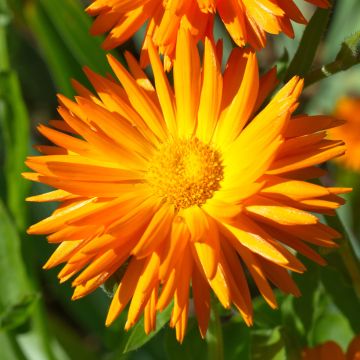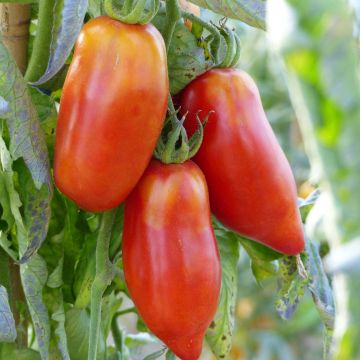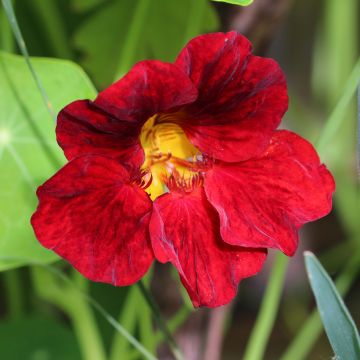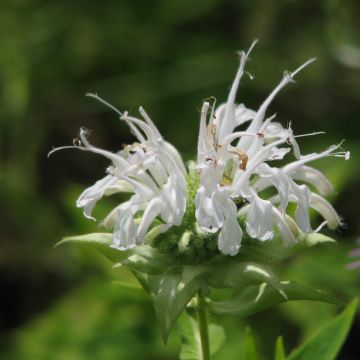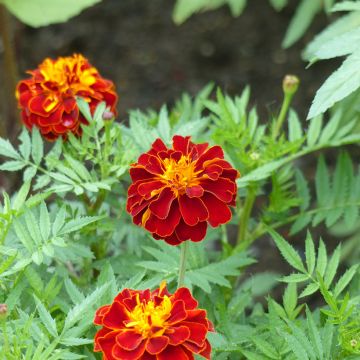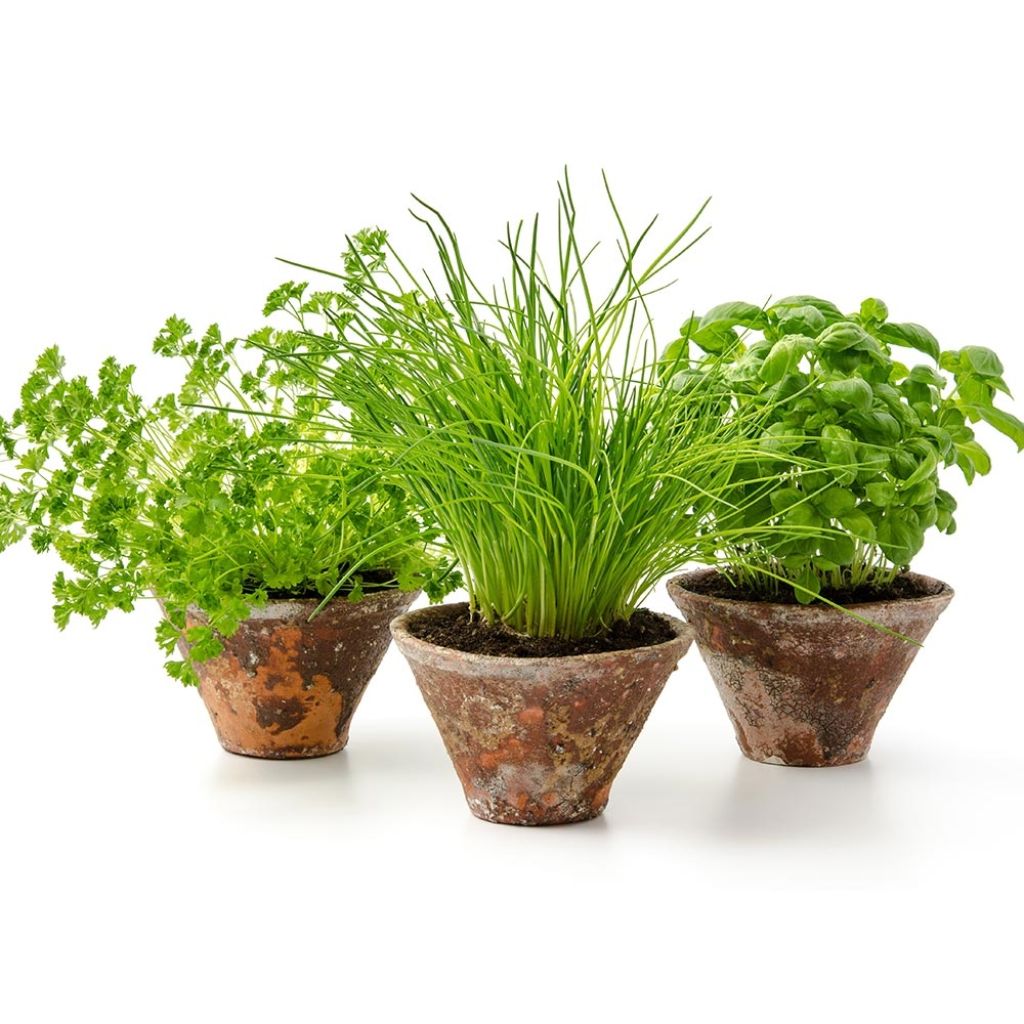

Neck of 3 essential aromatics
Neck of 3 essential aromatics
Disappointed, 2 lots ordered, only 1 received... the basil didn't take, the parsley is holding up and the chives are struggling to start.
Pioupiou , 01/05/2024
Special offer!
Receive a €20 voucher for any order over €90 (excluding delivery costs, credit notes, and plastic-free options)!
1- Add your favorite plants to your cart.
2- Once you have reached €90, confirm your order (you can even choose the delivery date!).
3- As soon as your order is shipped, you will receive an email containing your voucher code, valid for 3 months (90 days).
Your voucher is unique and can only be used once, for any order with a minimum value of €20, excluding delivery costs.
Can be combined with other current offers, non-divisible and non-refundable.
Home or relay delivery (depending on size and destination)
Schedule delivery date,
and select date in basket
This plant carries a 6 months recovery warranty
More information
We guarantee the quality of our plants for a full growing cycle, and will replace at our expense any plant that fails to recover under normal climatic and planting conditions.
Description
This Collection of 3 essential herbs in plug plants brings together Fine Chives, Compact Green Basil and Curly Parsley, the unbeatable trio that enhances any culinary preparation, from the simplest salad to the humblest vegetable puree, to all traditional dishes of our regions. These three plants are easy to grow in the sun, including in pots on the balcony or terrace. The plug plants can be planted from April to July, and the harvest is done as needed, from June to October, throughout the year for parsley.
The collection consists of:
1 x Fine Chives: it is distinguished by its finely aromatic flavor. This perennial plant is part of the ideal "herbes fines" to enhance salads, omelettes or fresh cheeses. It forms a clump of round and hollow dark green leaves, 25 to 30 cm (10 to 12in) high. It can also be used in ornamental gardens, as its flowering in violet pompoms is charming. It will last for two or three years, as beyond that, it tends to exhaust itself and become less productive. It will then need to be divided.
1 x Compact Green Basil: a hybrid variety of Compact Green Basil, tolerant to fusarium and less prone to seed production. Its broad leaves will enhance salads, tomatoes, marinades, can be used to make pesto, and will perfume Italian cuisine. Basil is an annual herb that needs warmth to thrive. Its aroma keeps mosquitoes and carrot flies away! Pick its leaves preferably in the morning.
1 x Curly Dark Green Parsley: a variety with crisped, finely cut leaves, showing good resistance to seed production. Its leaves will bring an aromatic and decorative note to your dishes. Parsley is one of the most commonly used herbs, to enhance salads, sauced dishes, or to make a bouquet garni. It is grown as an annual plant. Parsley is rich in vitamins A and C, trace elements and minerals. In terms of flavor, the stems are more aromatic than the leaves.
Storage:
- Chives can be stored for a few days in the refrigerator or for a few months by drying or freezing. However, it is preferable, to fully enjoy its aroma, to consume it freshly picked.
- For Basil: it is best to consume the fresh leaves quickly to fully enjoy their aroma. You can also introduce them into a bottle of olive oil and thus flavor your dressings. For longer storage, it is possible to freeze or dry the basil leaves, but they will lose some of their aroma.
- Consume parsley fresh to fully enjoy its aroma. However, it is possible to freeze or dry parsley leaves for longer storage. For drying, let the parsley bundles dry heads down in a dry place. When the stems become brittle, crumble them and transfer them to a tightly closed container.
Gardener's tip: To limit watering, we recommend mulching the soil with thin successive layers of clippings, if possible mixed with dead leaves. This protection, which allows the soil to remain moist, also reduces weeding. Chives do not require watering unless there is extreme heat.
Report an error about the product description
Harvest
Plant habit
Foliage
Other Collections
View all →Planting and care
Planting is done from April to September. You can install your herbs in the vegetable garden and/or in pots.
Planting:
In the ground:
First, let the plants grow by transplanting the plug plants into 8 to 13 cm (3 to 5in) diameter buckets filled with compost. Place them in a warm and bright location. Water regularly.
Planting in the ground is done in May or June, when the risk of frost is gone. Young herb plants appreciate rich and well-drained soil. Choose a sheltered and sunny spot (or partial shade if your summers are very hot). Soak the root ball in water for a few moments before planting. Space the plants 25cm (10in) apart in all directions. Dig a hole, place the root ball and cover with fine soil. Water thoroughly. During cultivation, hoe and weed regularly.
In pots:
Planting is done from April to June. Soak the root ball in water for a few moments before planting. Place a layer of gravel or clay pellets at the bottom of the pot to facilitate drainage. Fill the pot with a mixture of compost, garden soil, and sand. Gently place the plug plant and cover with fine soil. Water thoroughly. The pot can be placed indoors, in a bright location, or outdoors in the sun.
Maintenance:
Cut the flower stems before they bloom (unless you want to enjoy the chive flowers).
Parsley and Basil: pinch the tips of the stems when they reach about 15 cm (6in) in height to encourage branching.
Water at the base regularly. For potted plants, do not let water stagnate in the saucer.
Cultivation
Care
Intended location
-
, onOrder confirmed
Reply from on Promesse de fleurs
Similar products
Haven't found what you were looking for?
Hardiness is the lowest winter temperature a plant can endure without suffering serious damage or even dying. However, hardiness is affected by location (a sheltered area, such as a patio), protection (winter cover) and soil type (hardiness is improved by well-drained soil).

Photo Sharing Terms & Conditions
In order to encourage gardeners to interact and share their experiences, Promesse de fleurs offers various media enabling content to be uploaded onto its Site - in particular via the ‘Photo sharing’ module.
The User agrees to refrain from:
- Posting any content that is illegal, prejudicial, insulting, racist, inciteful to hatred, revisionist, contrary to public decency, that infringes on privacy or on the privacy rights of third parties, in particular the publicity rights of persons and goods, intellectual property rights, or the right to privacy.
- Submitting content on behalf of a third party;
- Impersonate the identity of a third party and/or publish any personal information about a third party;
In general, the User undertakes to refrain from any unethical behaviour.
All Content (in particular text, comments, files, images, photos, videos, creative works, etc.), which may be subject to property or intellectual property rights, image or other private rights, shall remain the property of the User, subject to the limited rights granted by the terms of the licence granted by Promesse de fleurs as stated below. Users are at liberty to publish or not to publish such Content on the Site, notably via the ‘Photo Sharing’ facility, and accept that this Content shall be made public and freely accessible, notably on the Internet.
Users further acknowledge, undertake to have ,and guarantee that they hold all necessary rights and permissions to publish such material on the Site, in particular with regard to the legislation in force pertaining to any privacy, property, intellectual property, image, or contractual rights, or rights of any other nature. By publishing such Content on the Site, Users acknowledge accepting full liability as publishers of the Content within the meaning of the law, and grant Promesse de fleurs, free of charge, an inclusive, worldwide licence for the said Content for the entire duration of its publication, including all reproduction, representation, up/downloading, displaying, performing, transmission, and storage rights.
Users also grant permission for their name to be linked to the Content and accept that this link may not always be made available.
By engaging in posting material, Users consent to their Content becoming automatically accessible on the Internet, in particular on other sites and/or blogs and/or web pages of the Promesse de fleurs site, including in particular social pages and the Promesse de fleurs catalogue.
Users may secure the removal of entrusted content free of charge by issuing a simple request via our contact form.
The flowering period indicated on our website applies to countries and regions located in USDA zone 8 (France, the United Kingdom, Ireland, the Netherlands, etc.)
It will vary according to where you live:
- In zones 9 to 10 (Italy, Spain, Greece, etc.), flowering will occur about 2 to 4 weeks earlier.
- In zones 6 to 7 (Germany, Poland, Slovenia, and lower mountainous regions), flowering will be delayed by 2 to 3 weeks.
- In zone 5 (Central Europe, Scandinavia), blooming will be delayed by 3 to 5 weeks.
In temperate climates, pruning of spring-flowering shrubs (forsythia, spireas, etc.) should be done just after flowering.
Pruning of summer-flowering shrubs (Indian Lilac, Perovskia, etc.) can be done in winter or spring.
In cold regions as well as with frost-sensitive plants, avoid pruning too early when severe frosts may still occur.
The planting period indicated on our website applies to countries and regions located in USDA zone 8 (France, United Kingdom, Ireland, Netherlands).
It will vary according to where you live:
- In Mediterranean zones (Marseille, Madrid, Milan, etc.), autumn and winter are the best planting periods.
- In continental zones (Strasbourg, Munich, Vienna, etc.), delay planting by 2 to 3 weeks in spring and bring it forward by 2 to 4 weeks in autumn.
- In mountainous regions (the Alps, Pyrenees, Carpathians, etc.), it is best to plant in late spring (May-June) or late summer (August-September).
The harvesting period indicated on our website applies to countries and regions in USDA zone 8 (France, England, Ireland, the Netherlands).
In colder areas (Scandinavia, Poland, Austria...) fruit and vegetable harvests are likely to be delayed by 3-4 weeks.
In warmer areas (Italy, Spain, Greece, etc.), harvesting will probably take place earlier, depending on weather conditions.
The sowing periods indicated on our website apply to countries and regions within USDA Zone 8 (France, UK, Ireland, Netherlands).
In colder areas (Scandinavia, Poland, Austria...), delay any outdoor sowing by 3-4 weeks, or sow under glass.
In warmer climes (Italy, Spain, Greece, etc.), bring outdoor sowing forward by a few weeks.






























